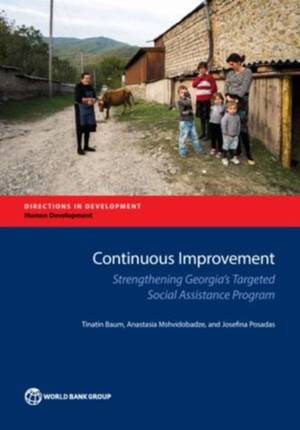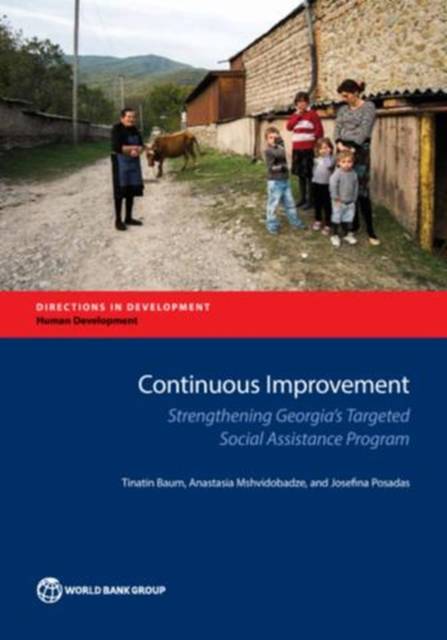
- Retrait gratuit dans votre magasin Club
- 7.000.000 titres dans notre catalogue
- Payer en toute sécurité
- Toujours un magasin près de chez vous
- Retrait gratuit dans votre magasin Club
- 7.000.0000 titres dans notre catalogue
- Payer en toute sécurité
- Toujours un magasin près de chez vous
Continuous Improvement
Strengthening Georgia's Targeted Social Assistance Program
Tinatin Baum, Anastasia Mshvidobadze, Josefina PosadasDescription
Targeted Social Assistance of Georgia is a last-resort social program that is considered a best practice among programs based on proxy means testing (PMT). It achieves high targeting accuracy for a relatively high level of poverty incidence. In 2013, the government of Georgia embarked on the revision of this program to ensure its continued effectiveness and to revise some of the parameters of the eligibility formula that could be subject to manipulation. In particular, the government was concerned about the subjective evaluation of social agents and about concealable goods giving room to abuses in terms of program eligibility. Continuous Improvement: Strengthening Georgia s Targeted Social Assistance Program assesses the technical work and the policy actions taken by the Georgian government during 2014 and 2015. It covers the full cycle of the reform of a social assistance program, from establishing the objectives to the design of compensation measures that minimize the number of newly ineligible beneficiaries. In particular, it describes the revision of the PMT formula, the introduction of a scheme of benefits that decreases with the score and an associated assistance program for children, the pretesting of the new formula, and the design of compensation measures. The report also includes a chapter with specific recommendations for Georgia to consider in its efforts to improve its system of social protection and labor."
Spécifications
Parties prenantes
- Auteur(s) :
- Editeur:
Contenu
- Nombre de pages :
- 184
- Langue:
- Anglais
- Collection :
Caractéristiques
- EAN:
- 9781464809002
- Date de parution :
- 23-08-16
- Format:
- Livre broché
- Format numérique:
- Trade paperback (VS)
- Dimensions :
- 178 mm x 254 mm
- Poids :
- 331 g

Les avis
Nous publions uniquement les avis qui respectent les conditions requises. Consultez nos conditions pour les avis.






